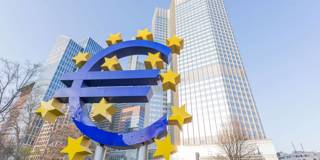Following a recent agreement by the Eurogroup of eurozone finance ministers on a COVID-19 rescue package, Europe is well positioned to maintain liquidity for the time being. But if it wants to avoid political infighting and set the stage for a post-pandemic recovery, it will need to go further.
BRUSSELS – Last week, the Eurogroup of eurozone finance ministers, having acknowledged that nobody is to blame for the COVID-19 crisis, agreed to a deal to mitigate its economic fallout. The agreement includes €25 billion ($27.2 billion) in fresh funding for the European Investment Bank, €250 billion ($272 billion) for the European Stability Mechanism (ESM), and €100 billion ($109 billion) for the creation of a new instrument through which the European Commission can help member states manage their looming unemployment crises. All told, the package amounts to a substantial sum: around €500 billion in loans (when accounting for the leverage of the EIB’s programs).

BRUSSELS – Last week, the Eurogroup of eurozone finance ministers, having acknowledged that nobody is to blame for the COVID-19 crisis, agreed to a deal to mitigate its economic fallout. The agreement includes €25 billion ($27.2 billion) in fresh funding for the European Investment Bank, €250 billion ($272 billion) for the European Stability Mechanism (ESM), and €100 billion ($109 billion) for the creation of a new instrument through which the European Commission can help member states manage their looming unemployment crises. All told, the package amounts to a substantial sum: around €500 billion in loans (when accounting for the leverage of the EIB’s programs).